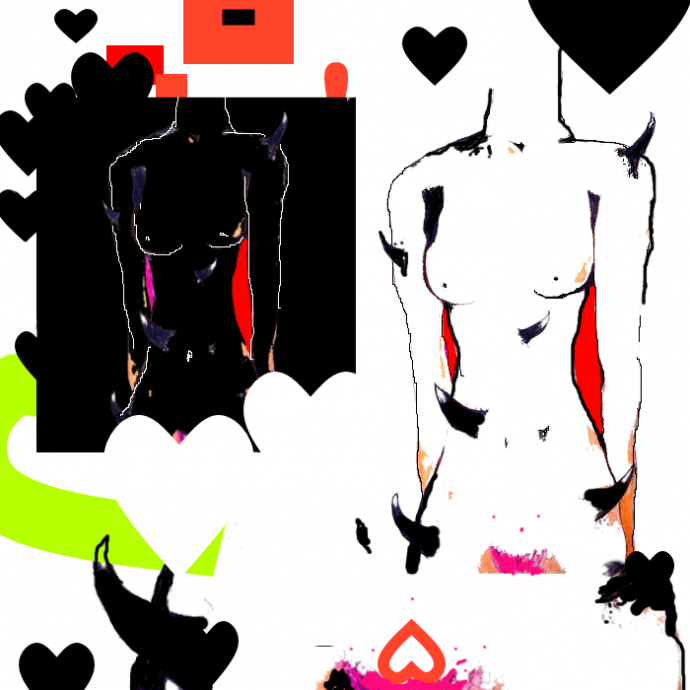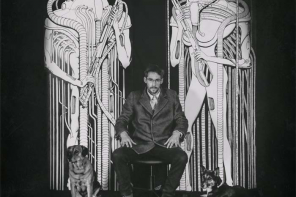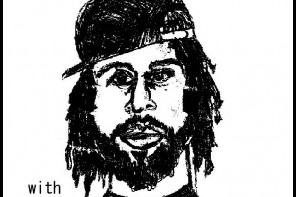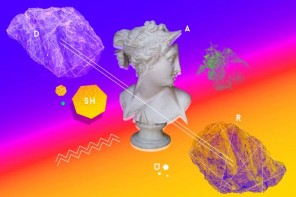Australia is a one of the world’s biggest melting pots, well known for its mixture of cultures, people, and characteristics. New waves and movements that originate in the country are greatly influenced by overseas tendencies, flavoured up by the picturesque atmosphere as well as local artistic input.
This is how Kate Miller, a musician and DJ from Melbourne, describes her homeland. At age 4, Kate started her musical path with piano, and by age 19, proceeded with residency as a DJ in one of the city’s local clubs. Today she lives in Berlin and plays in the world’s most appreciated underground spaces. She continues to learns music production, and enjoys how open and accepting the electronic music scene is in Berlin.
Sensa Nostra talks to Kate about the booming club scene in Melbourne, the uniqueness of music styles, the possibilities for young artists, as well as insecurities of local Melbourne promoters. She reflects on her achievements and experiences in the club scene through the prism of traveling overseas, and discusses how she continues to find her true artistic confidence in a foreign country among people with common views.
Australians originally came from all over the world, so naturally different nationalities brought their cultures with them when they moved to a new reality. This is a how every young culture develops and begins to affect every sphere of human activity. Music is not an exception. Initially, the Australian culture was greatly influenced by Europe. This impact is reflected in the sophistication of fashion, food, and of course music.
The Melbourne electronic music scene is eclectic and eccentric. Djs in Melbourne, who are mostly men by the way, worship artists like DJ Harvey, someone with a huge record collection and many different genres mixed together: disco, house, and techno. I cannot define one particular sound of Melbourne, as it can be produced to some extent in Berlin and Chicago. But what makes local DJs special is that they embrace different genres with ease and make them fit together in the most natural way. This actually describes the Australian approach— mixing different ingredients, adding some exotic and colorful seasonings, and melting them into a new product. I have to admit that Melbourne guys do this really well.
We did not have our own club scene for a very long time, and it did not originate in the streets or at house parties. Clubbers and DJs were influenced by the UK, Berlin, New York, Chicago, and Detroit. But over the years we’ve developed a kind of broader, more diverse Melbourne sound. Thus, this scene is still quite young.
I have always been strongly connected to music through my parents and piano lessons, but it was not about clubs until I turned 18. This is the legal age when Australians are allowed to enter clubs, and it’s an important milestone for young people. This is when one can officially start to party.
What Melbourne is really known for is its tiny venues hidden in the lanes that are really hard to find. The first club I went to was called ‘Third Class’. Going to a club at that time was not a trend— it was all about having a party. The music that was playing there was kind of trashy, but in an ironic way. We knew that we were trashy, but we enjoyed it all the same. It was not very serious and people were just having fun.
It was not difficult for me to get into the scene in Melbourne, but I could not move once I started djing in one club. I got stuck in the same place for two years, and there were no new bookings or audiences. There was just no development for me. I tried to get in touch with people who ran other parties, but even if it would sometimes work out, it did not lead me anywhere. And then there were my friends coming back from Berlin telling me about how amazing the city was. So three years ago I decided to go and check it out myself. In Melbourne, I was told that there was no way I was coming back. At that time I did not believe it. Well, I have been living in Berlin ever since then.
The most astonishing thing about Berlin is that you can always find people who share the same passions. Many of them try to get involved in some sort of a creative process and are not afraid to make connections and help one another. There is no need for anyone here to try to be cool. They are open to each other, and this obviously brings great results.
On the contrary, I sometimes felt that people were too judgmental in Melbourne. I think it costs people so much energy to try to fit in and to be fashionable and pay attention to what others are wearing or doing all the time. Even if you try not to stand out and make a statement, it’s still exhausting trying to prove that you are not proving anything. There is also much more sexism in Melbourne.
My theory is that Melbourne is insecure. It is on the other side of the world, and the electronic music scene is not fully established yet. We only have a few internationally-recognized DJs and producers, like Mic Newman, Tornado Wallace, Francis Inferno Orchestra, and Roland Tings. But most Melbourne electronic artists are not very well-known. Unfortunately, it is hard for the local guys to get much attention, as the Melbourne promoters need to book international guests in order to bring people to their club. It seems like we, Australians, always need some kind of proof of whether we are good enough, or whether artists from Melbourne, for example, are as good as artists from overseas. I think this creates a kind of insecurity when everyone has got something to prove.
It seems like we, Australians, always need some kind of proof of whether we are good enough, or whether artists from Melbourne, for example, are as good as artists from overseas. I think this creates a kind of insecurity when everyone has got something to prove.
This is why people in Melbourne are so focused on being fashionable and exclusive. Though when I think about it, it seems funny how people use someone else’s products to claim who they are, because buying a pair of shoes is not a big achievement. It is not the result of your input, and in fact there is nothing to be proud of. I also like to look nice and dress up. However, the clothes or brands should never be the first priority. And I love how in Berlin, people get excited about you because you are exotic and you want to collaborate and contribute, and it is always up to you what pair of shoes you want to have on.
The Melbourne club scene is rapidly becoming bigger and more recognized. But like I said, clubs book international DJs like Prosumer and Steffi to get an audience to come to their venues. And the people who run the events are also DJs, so they book themselves to do the warm-up. Eventually these guys also become well-known and admired, but they are never the main act. They stay the warm-up DJ for ten years. The locals are appreciated but it is extremely difficult for them to move. It seems like promoters in Melbourne care more for the artists’ previous club list rather than their creativity and skills. DJs should not be treated as superstars as their task is to be the core of the musical atmosphere in a club, while other participants, such as sound and light technicians as well as the audience themselves, play an important role. If local artists are not given a chance to play the leading part, the scene will never be truly original.
My perfect clubbing experience is depicted in ‘Despacio Soundsystem’ directed by James Murphy and 2ManyDJs. They designed the club with a sound system that circles the dance floor, with the DJ booth placed in the corner in darkness so the clubbers don’t know where it is. The sound is amazing and people are dancing without looking at the DJ. But he’s there, choosing the records quietly. Eventually everyone gets into the right groove, being there for themselves or their friends. This approach takes away the entertainer aspect from a DJ.
And for me, from the DJ’s perspective, it is most pleasurable to be in the darkness close to the audience in order to feel the connection. There are also a lot of well-known festivals in Australia, but when you are on a stage with big lights, everyone is expecting something from you— the set needs to be exciting and building up all the time. And if I wish to have an intimate, warm, chilled set, it is impossible to do that with the lights blinding you, which is what happens at big festivals where you are on a stage. It is not even a DJ set anymore, but more like a rock concert.
I hope that my experience in Berlin will help me to be recognized in my country as well, as this is where I understood what my true passion is. I do not strive to get attention in Australia as I am happy with what I have at the moment here. Also, I do not rush anything and just try to enjoy the good energy of Berlin where, for example, I recently met a booking agency owner who is in her late 60’s and has been djing for over 20 years and is still heavily involved in the scene. She came to my gig in Stattbad at seven in the morning, in a location where she used to go swimming in the 90’s. These little coincidences give me confidence in my beliefs and aspirations as a DJ.







